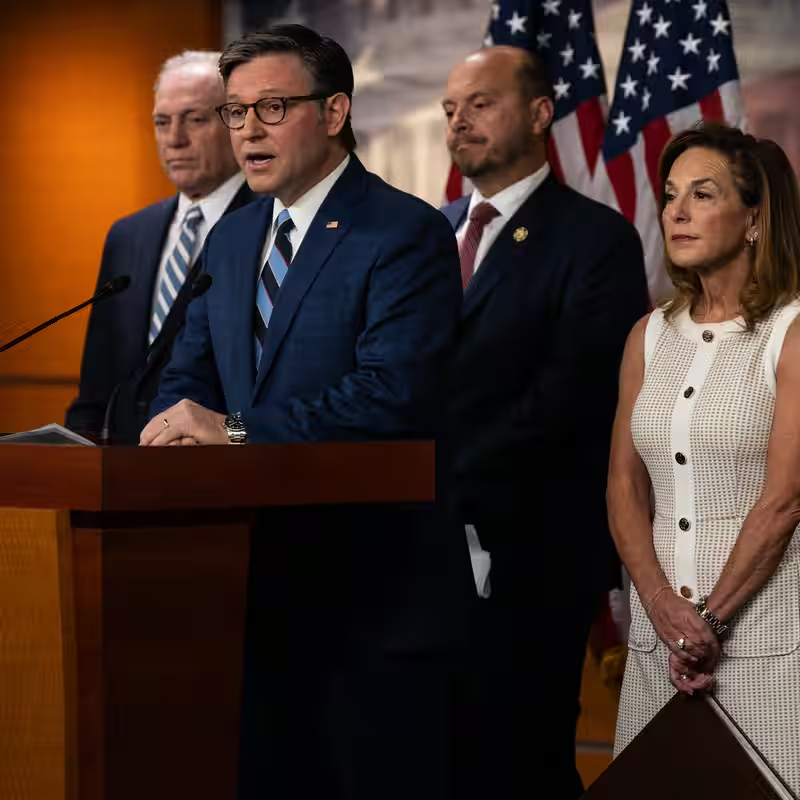Table of Contents
- Shutdown Puts Health Care Back in Spotlight
- G.O.P.’s Internal Rift Over Obamacare
- Why ACA Tax Credits Matter Now
- Trump’s Murky Position Complicates Strategy
- What’s at Stake for Both Parties?
- Sources
Obamacare Debate Reignites as Shutdown Drags On
As the federal government shutdown enters its fourth week with no resolution in sight, health care has unexpectedly returned to the center of America’s political storm. At issue: the future of the Affordable Care Act (ACA)—better known as Obamacare—and whether millions of Americans will lose vital subsidies if Congress fails to act.
Democrats are refusing to approve any spending deal unless it includes an extension of expiring ACA tax credits. These credits help lower premiums for roughly 13 million people who buy insurance through the marketplace. Without them, experts warn, monthly costs could spike by hundreds of dollars, and some may lose coverage entirely.
G.O.P.’s Internal Rift Over Obamacare
For Republicans, the standoff has exposed a long-standing vulnerability: while many in the party continue to denounce Obamacare, few are willing to risk repealing it without a viable replacement.
“They hate it, but they won’t touch it,” said Dr. Elena Martinez, a health policy analyst at Georgetown University. “Because they know what happened in 2017—when repeal efforts collapsed amid public backlash.”
Hardliners in the House Freedom Caucus still push for full repeal, arguing that the law represents government overreach. But moderate Republicans, especially those in swing districts, fear electoral fallout if subsidies disappear.
Why ACA Tax Credits Matter Now
The enhanced tax credits were first expanded under the American Rescue Plan in 2021 and extended through 2025. If they expire at year’s end, average premiums could rise by 40%, according to the Kaiser Family Foundation.
| Scenario | Average Monthly Premium (2025) | With Expiring Credits (2026) |
|---|---|---|
| Age 27, Non-Smoker | $320 | $510 |
| Age 55, Non-Smoker | $680 | $1,100+ |
| Family of Four | $1,200 | $1,900+ |
“This isn’t just about policy—it’s about real people choosing between insulin and rent,” said Rep. Lisa Blunt Rochester (D-Del.).
Trump’s Murky Position Complicates Strategy
Former President Donald Trump, still a dominant force in the G.O.P., has sent mixed signals. In 2023, he urged Republicans to “never give up” on repealing Obamacare. Yet he has offered no detailed alternative—and recently told allies he doesn’t want health care to be a 2026 campaign liability.
“He wants the win of saying ‘we killed Obamacare,’ but not the blame if people lose coverage,” said GOP strategist Marcus Lin.
Meanwhile, Republican leaders in Congress have largely dodged specifics, claiming they “have a plan” but refusing to release it—fueling accusations of political theater over substance.
What’s at Stake for Both Parties?
For Democrats, linking the shutdown to health care is a strategic masterstroke. It frames them as defenders of middle-class security while forcing Republicans into a corner.
For the G.O.P., the dilemma is acute: oppose the extension and risk alienating voters who rely on subsidies, or accept it and betray their anti-Obamacare base.
“The irony is thick,” said political historian Dr. James Wong. “The law they spent a decade trying to destroy is now the one they can’t afford to lose.”




